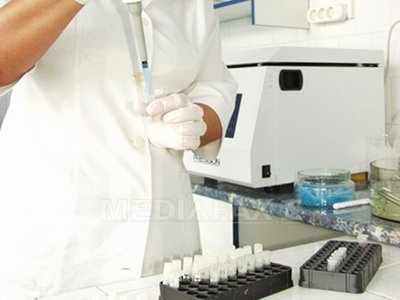Treatment for leukemia

A promising experimental treatment for leukemia, researchers found
.
T cells - immune cells responsible for defending the body - which have been genetically proved effective against chronic lymphocytic leukemia, the most common form of this blood cancer, according to an experimental study, published Wednesday in the United States.
According to researchers from the Faculty of Medicine at the University of Pennsylvania in the United States of America, this therapy has, until now, the remissions of the disease a year for two of the three patients in this study who suffered from leukemia in advanced. In the case of the third patient, the disease has returned after four months, but in a modified form.
This approach could be applied to treat other cancers such as lung, ovarian and melanoma, but must be subject to further research, say the authors.
This treatment consisted of removal of T lymphocytes from those patients and their modification by using a lentivirus gene in order for them to selectively attack only cancer cells - all of which bear a particular protein - and sparing healthy cells in the body .
Scientists are scheduled at the same time, T cells to accelerate the process of multiplication.
The researchers then injected these genetically modified lymphocytes of three patients who received prior chemotherapy sessions.
"In three weeks, tumors were destroyed with an efficiency that has never been seen before," said Dr. Carl June, professor of pathology at the Abramson Cancer Research Center against the University of Pennsylvania, lead author of the study, published in New England Journal of Medicine and Science in Translational Medicine.
"It was much better than we expected," added the same scientist, who estimated that T lymphocytes genetically modified, which he called "serial killers" have destroyed almost a kilogram (910 grams) of cancerous tumors in each patient.
The results of this pilot clinical study are significantly different from those of existing therapies for this type of leukemia.
Three patients had few other treatment options. The only option was a bone marrow transplant, a procedure requiring a long hospitalization and mortality risk of 20%.
In addition, the transplant offers the best chance of healing 50%.
"The new approach has the potential to offer the same chance of cure, but with significantly less risk," concluded the doctor David Porter of the University of Pennsylvania, co-author of the study.
You Have Comments and Share Options
Enjoy !










